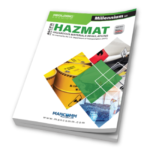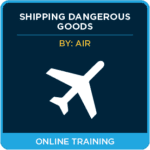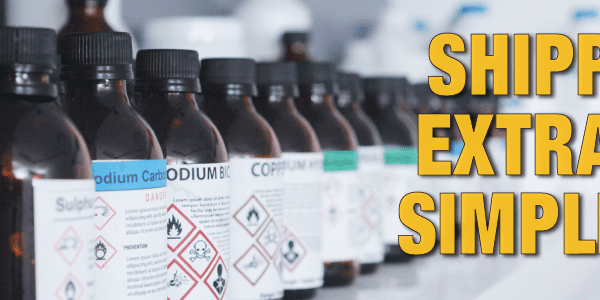As the end of 2021 approaches, we still are struggling with many of the issues COVID-19 has created. But some are, thankfully, in the past. Remember when the Centres for Disease Control was giving instructions on how to create your own mask with a handkerchief and hair ties? Oh, and hand sanitizer was impossible to get. We’ve come a long way. And some of the solutions for those issues will no longer be needed. By 2022, they’ll be gone.
In the early days of the pandemic, both the U.S. Department of Transportation (DOT) and Transport Canada had to address several issues. First, how would samples of the new COVID virus be transported, either for research or as testing samples? Second, how could they speed up the supply chain for hand sanitizers and disinfectants, which were suffering bottlenecks such as the lack of available UN specification packaging for containers that were too big to go as limited quantities0 Finally, how could the training of workers, particularly refresher training, be carried out in a time when social distancing prevented face-to-face contact?
U.S. Provisions – Most but Not All Have Expired
The U.S. addressed these issues by issuing “Notices of Enforcement Discretion.” These directed inspectors for the Pipeline and Hazardous Materials Administration (PHMSA) to allow certain activities to be allowed by inspectors during the critical time periods even when not in compliance with the Hazardous Materials Regulations of Title 49, Code of Federal Regulations (49 CFR). These have already expired:
- Reduced requirements for packaging and hazard communication for hand sanitizers – Expired March 31, 2021
- Variance of requirements for training (delayed expiry of certification) – Expired October 31, 2020, for most workers; December 31, 2020, for maritime workers
- Extension of testing requirements for UN specification packaging – Expired October 31, 2020.
One notice still in effect is for extended test periods for compressed gas cylinders, which were further delayed by Hurricane Ida. This notice will be in effect until January 15, 2022.
Canadian Temporary Certificates
Transport Canada addressed special requirements for COVID issues by issuing “temporary certificates.” Unlike normal certificates of equivalent level of safety, these could be used by any company who found them useful. A complete list of these certificates can be seen on Transport Canada’s website here.
Two of these certificates have already expired – TU07590.1, Training, which extended the allowed retraining period, and TU0751.2, Testing and Inspection Requirements, which gave an extension for retesting standardized packaging.
The remaining certificates are due to expire on December 31, 2021. These include:
- TU 0752.3: Hand sanitizers, which gives relief of certain requirements for larger containers of hand sanitizers, such as reduced package markings and shipping document requirements, as well as relief from UN specification packaging.
- TU 0753.3 Canada Post Corporation – Shipping hand sanitizer by air, which allowed Canada Post to use mail to deliver hand sanitizers by air mail with reduced requirements similar to TU 0742.3.
- TU 0754.2: Transporting hand sanitizer by air, which permitted hand sanitizers to be shipped by air in quantities not permitted by the ICAO Technical Instructions for Safe Transport of Dangerous Goods by Air, and with reduced packaging and hazard communication. This was to facilitate getting hand sanitizers to areas without easily accessible ground transport.
- TU 0764.1 – Test samples for COVID-19, which allowed for an alternative way of shipping samples of COVID in Category B, Division 6.2, with reduced packaging.
Conclusion
These provisions have been essential in the early days of the pandemic to get essential safety supplies to consumers and workplaces and to allow COVID samples to be shipped legally when the normal packaging and marking wasn’t available. However, the supply chain for products like sanitizers and disinfectants have grown to address these needs, and the certificates/notices of enforcement aren’t really necessary anymore. Therefore, we can return to shipping such hazardous materials using the standard protocols.
Do you need to ship consumer or industrial COVID supplies? If you were relying on these provisions, remember that in the United States, most are already expired. In Canada, they will expire at the end of 2021. So, if you need help with packaging solutions, hazard communication tools, or training, just call ICC The Compliance Center at 1-888-442-9628 (U.S.) or 1-888-977-4834 (Canada). We’ll be happy to help you find the materials and procedures you need to ship your materials in full compliance with the regulations.
Sources:
PHMSA, “PHMSA Notice of Reinstatement and Extension of Enforcement Policy Regarding Hand Sanitizers,” https://www.phmsa.dot.gov/news/phmsa-notice-reinstatement-and-extension-enforcement-policy-regarding-hand-sanitizers?mc_cid=542447b681&mc_eid=627bedb903
PHMSA, “Notice of Extension of Enforcement Discretion Regarding Hazardous Materials Training Requirements,” https://www.phmsa.dot.gov/news/notice-extension-enforcement-discretion-regarding-hazardous-materials-training-requirements
PHMSA, “Notice of Enforcement Policy Regarding Hazardous Materials Training Requirements for Maritime Workers,” https://www.phmsa.dot.gov/news/phmsa-notice-enforcement-policy-regarding-hazardous-materials-training-requirements-maritime
PHMSA, “PHMSA Notice of Extension of Enforcement Discretion for the Manufacturing of Packaging Designs Beyond Periodic Retesting Dates,” https://www.phmsa.dot.gov/news/phmsa-notice-extension-enforcement-discretion-manufacturing-packaging-designs-beyond-periodic
Transport Canada, “Temporary Certificates,” https://tc.canada.ca/en/dangerous-goods/temporary-certificates
Stay up to date and sign up for our newsletter!
We have all the products, services and training you need to ensure your staff is properly trained and informed.
 Regulatory Publications |
 UN Approved Packaging |
 Training Courses |







 ICC USA
ICC USA ICC Canada
ICC Canada